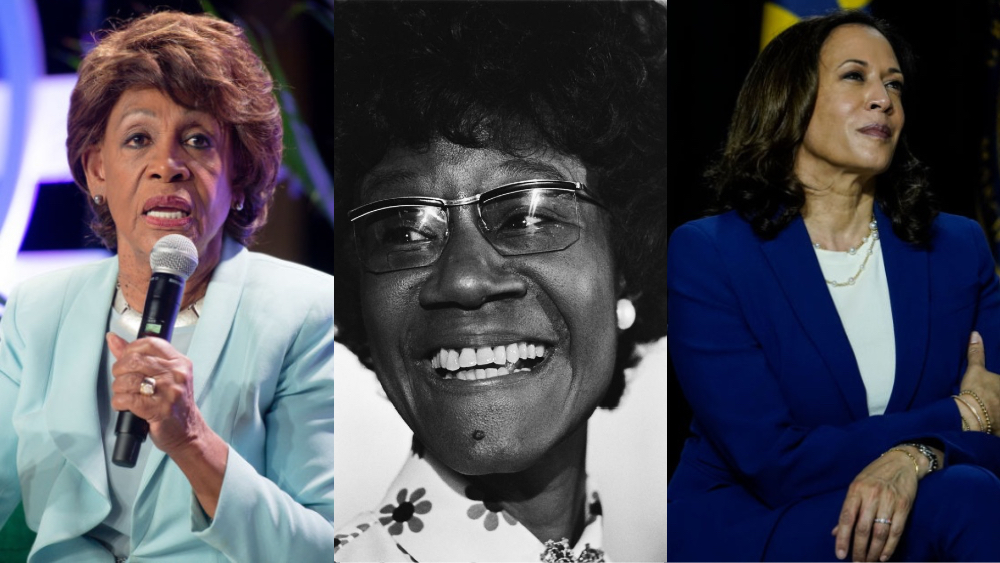If you’re interested in sharing your opinion on any cultural, political or personal topic, create an account here and check out our how-to post to learn more.
____
Politics, according to Harold Lasswell, is the power to decide who gets what, when and how. And politics doesn’t only happen in the hallowed halls and institutions of our governing structures.
I advance that the voices of Black women in first-wave feminism and securing the 19th Amendment were indeed lacking and virtually non-existent in a recognized way, due to enslavement and persistent racism, as is the case with lots of movements for equality and equity. Their voices were also not very recognized during the Civil Rights Movement either. A tell-tale sign of the latter’s lack of recognition is that it wasn’t until the 21st century that anyone ever heard of the powerful women (Katherine Johnson, Dorothy Vaughn and Mary Jackson) known as “Hidden Figures.”
First-wave feminism, it is said, began in 1850. In 1850 state sanctioned slavery was still the basis of American capitalism. As it regards enslaved African women, men and their offspring, we first see Black people written into American law in the form of the Three-Fifths Compromise as a way to provide a tax break to Northern states and provide more legislative representation to Confederate states. The promise of life, liberty and the pursuit of happiness wasn’t a promise to enslaved Africans. We next see Black people written into law during the Reconstruction Amendments. The concept of citizenship, its privileges and protections just never seem to catch on substantively for Black folks.
I contend that every protest movement in America links itself to the Black struggle movement, in all of the Black struggle iterations and eras, as a way to gain leverage. What I see at work is Critical Race Theory’s interest convergence principal that essentially permits Black folk to gain civil rights wins only when and if Black and white interests converge. The disappointment is that once the interests convergence is underway, either the Black movement and voices get co-opted, the Black movement and voices get framed negatively or Blacks are simply forgotten about once the dominant group gets what it wants.
It is my hope that women will be more recognized for their role in the current Black struggle movement. But hope alone will not make this a reality. A recent CNN article’s, headline heralded the record number of women CEOs at Fortune 500 companies. Going beyond the headline, however, reveals that included in that record number of 38, none were Black or Latinx women. If white women or other marginalized folk want to help their cause, they need to understand that they can’t quiet or abandon the convergence once they get what they want.
In 1962, Malcolm X said, “The most disrespected person in America is the Black woman. The most unprotected person in America is the Black woman. The most neglected person in America is the Black woman.”
To that end, given that Black women are the most marginalized and harmed, for the rising tide to lift all boats, the tide must extend to the shores and include in a meaningful way the most disrespected, unprotected and neglected persons — Black women. Policies and the decisions that come from the exercise of political power must extend all the way to Black women, and primarily to the most marginalized and unsung among Black women. These women must be intricately involved in the political decision-making process, giving voice to the challenges and contributing to the construct of the solutions.
One such organization of women that comes to mind is the Sisters of The Movement. This is an organization led by Black women who share the commonality of losing a family member/sibling to police brutality and are fighting this form of terrorism. The movement’s common goal is to raise awareness through legislation and to prevent police brutality.
Frederick Douglass said power concedes nothing without a demand. I believe the future for Black female politics is bright. There is too much at stake for the Black community. Reluctant Black female leadership will emerge from the ranks of those who typically do not view themselves as leaders. They will demand and obtain political power both within and outside of the hallowed halls of government and in institutions. It is already happening.
